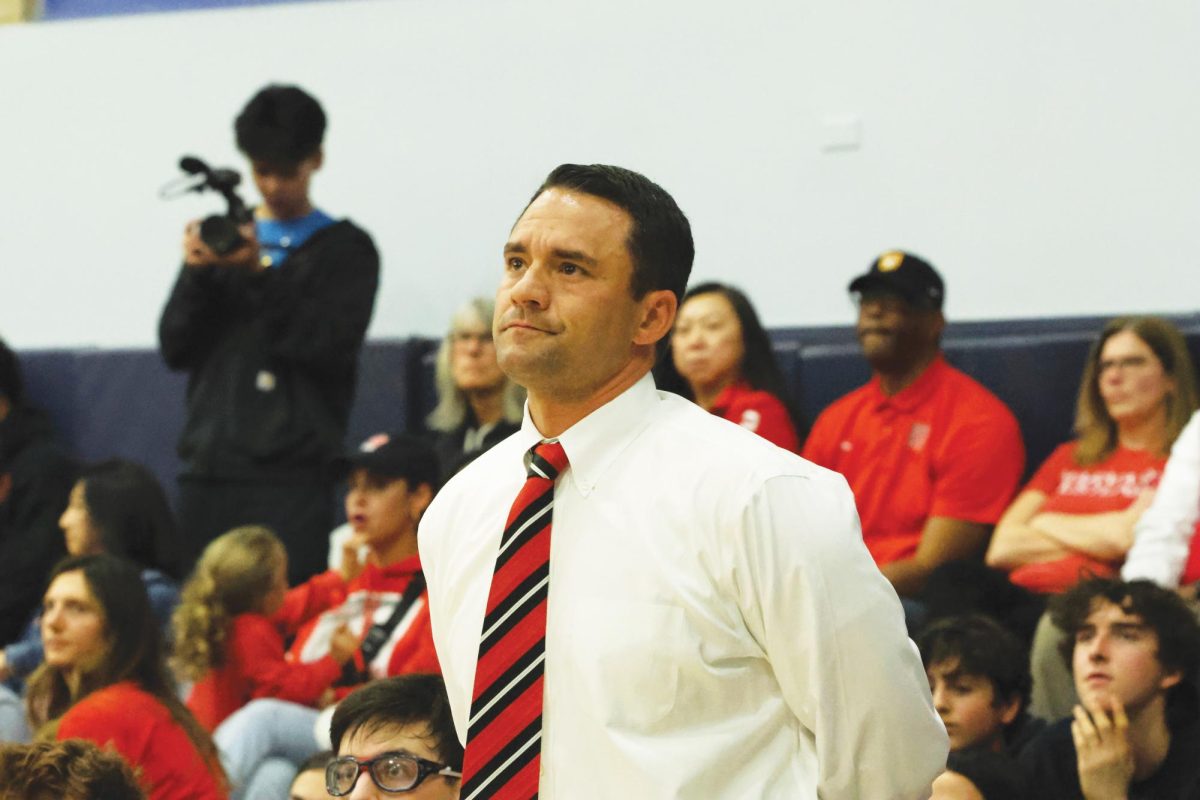Michael Brown, an unarmed, black 18-year-old, was shot to death by a white police officer, Darren Wilson, on Aug. 9 in Ferguson, Missouri. Police allege Brown stole a box of cigars from a local convenience store, but Brown was actually stopped for jaywalking. The facts of the encounter between Wilson and Brown are in dispute, but some witnesses say Brown had his hands up when the officer fired. A preliminary autopsy, paid for by Brown’s family, showed that he was shot at least six times, including twice in the head. After the shooting, residents and other protesters held prayer vigils and took to the streets of Ferguson, where they were met by police in riot gear. As tensions increased, some protesters threw rocks, bottles and Molotov cocktails at the police, who fired stun grenades, rubber bullets and tear gas canisters in return.
A Parent’s Perspective
Lisa Robinson (Garrett ’15), a member of Parents of African Americans at Harvard-Westlake School, hopes that all members of the community, regardless of race, will get involved in the pursuit of justice for innocent, unarmed black victims.
“That could have been [Garrett]. That could have been any of our kids,” Robinson said. “Unarmed, going about their business with friends. Our kids do that everyday. It just saddens me that these things are still going on.”
Robinson views the issue from a dual perspective.
She comes from a police family and has two black sons. Controversies like Brown’s death are especially sensitive for her family, she said.
“Until the public perception of black males change, I don’t know if the issue is going to be fixed,” she said. “It’s going to cost young black men their lives. It is not just an issue with the black community. It is an issue that we are going to have to take as a whole, all minorities and majorities.”
Robinson tries to teach her children that everyone is equal, but because shootings of unarmed black men happen often, she said she has no choice but to prepare her children for the realities in a black man’s life.
“You want them to feel like they are equal and you want them to feel like they will be treated the same, but it does become a challenge to do that when you are in a world where even far away, and it happens in Los Angeles, where they see every day kids who look just like them being judged for their color,” Robinson said.
Perspective of Alumni at Washington University
Alumni at Washington University in St. Louis, which is about eight miles from the shooting, have experienced the conflict at a closer range.
The day of Brown’s funeral was the same day that Washington University’s classes began on campus.
“When I stepped out of my dorm building this morning, I found that the ground was covered in chalk drawings and sayings such as ‘Black Lives Matter’ and ‘Chalked Unarmed,’” Katie Ehrlich ’14 said.
The university sent emails to students about the Ferguson shooting before school started, and the issue was referenced in the opening convocation speech.
“We must be steadfast in our commitment to have a diverse and inclusive community, in order to provide the best possible education, research, clinical care and service,” read one such university-wide email from Washington University Chancellor Mark S. Wrighton.
Some students, however, believe they have not seen evidence of social unrest on the university campus.
“Although there is talk and awareness, Washington University is similar to Harvard-Westlake in that it exists in a bubble and is aware of but safe from the gross injustices of the outside world,” Anton Beer ’14 said.
“I think it is definitely the most discussed current event on campus, but move-in is taking up everyone’s time,” Andrew Meepos ’13 said. “If the whole incident had happened in a few weeks, when people were settled into campus, there would likely be more active participation.”
Meepos said around 500 out of 6,400 undergraduate students protested in St. Louis, which was about 5–10 percent of the student body.
A Student’s Perspective
Rachel Savage ’15, a leader of Harvard Westlake’s BLACC, said she worries for the life of her brother, who attends Yale University, because he could have been walking to classes and been in Brown’s situation.
Although the BLACC did not meet during the summer break, Savage anticipates that the tragedy will be a hot topic at the meetings this fall. She hopes to organize fundraisers to improve gun control laws.
“I think that after the fact, after something like that has happened, the department needs to own up to it and not try to protect the police officer, like they’re doing,” she said. “They’re trying to get bills passed where police officers involved in fatal shootings will get anonymity. That’s just trying to cover their mistake when they shouldn’t. They have to make an example of it to make sure it doesn’t happen again.”
Savage believes Harvard Westlake students are reluctant to discuss the shooting because of the heaviness of the subject matter.
“When it comes on TV, they will say ‘that’s’ crazy,’ but it is a sad subject,” Savage said. “It is a sensitive subject. I do not think that people just want to ignore it and hope that it goes away, but at the same time, I do not want to just be eating lunch and have to start thinking and talking about the tragedy. It is just not dinner table conversation and not something that gets talked about.”





































